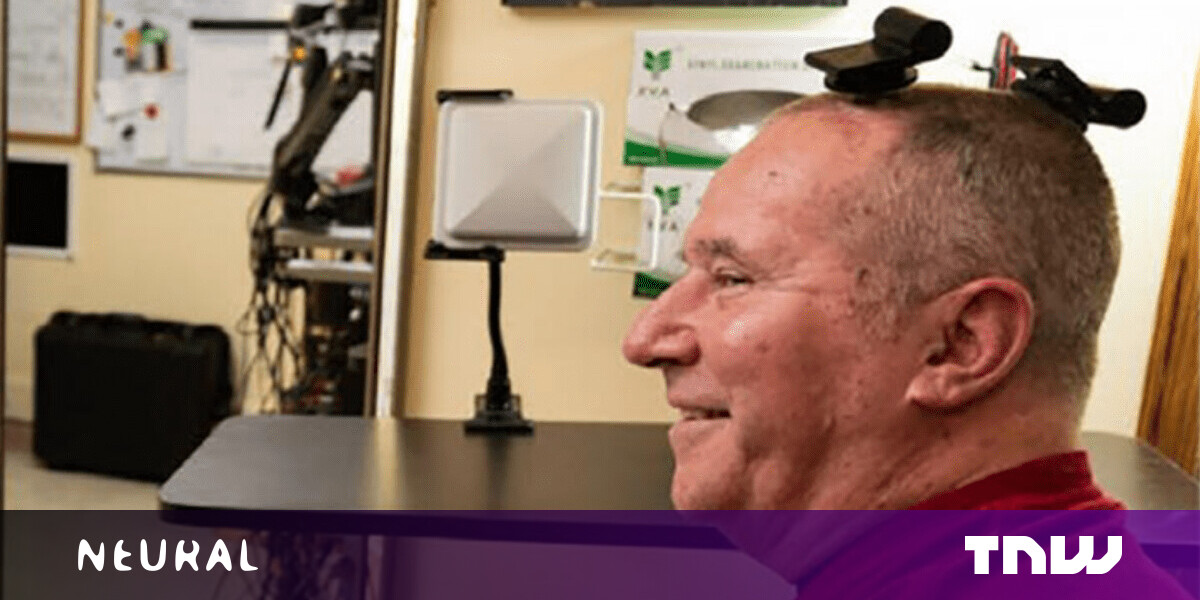#A wireless BCI has been successfully tested on humans for the first time

“#A wireless BCI has been successfully tested on humans for the first time”
While traditional BCIs are tethered to users via cables, the new system — called BrainGate — replaces the cords with a small transmitter affixed atop a users’ head. The unit then connects to an electrode array implanted in the brain’s motor cortex.
In a clinical trial, two participants with paralysis used the system to point, click, and type on a standard tablet computer. They both achieved similar typing speeds and point-and-click accuracy as those attained with wired systems.
[Read: How to use AI to better serve your customers]
The researchers say it’s the first time a device has transmitted the full spectrum of signals recorded by a sensor in the brain’s motor cortex.

John Simera, the study’s lead author, said the device was functionally equivalent to wired BCIs, but without the restrictions of cables:
The signals are recorded and transmitted with appropriately similar fidelity, which means we can use the same decoding algorithms we used with wired equipment. The only difference is that people no longer need to be physically tethered to our equipment, which opens up new possibilities in terms of how the system can be used.
The participants were also able to use the system in their homes, unencumbered by cables, for up to 24 hours.
Leigh Hochberg, who leads the BrainGate clinical trials, said this allowed the team to understand how neural signals evolve over time:
With this system, we’re able to look at brain activity, at home, over long periods in a way that was nearly impossible before. This will help us to design decoding algorithms that provide for the seamless, intuitive, reliable restoration of communication and mobility for people with paralysis.”
The researchers will now use the insights to develop the next generation of neurotechnologies. Ultimately, their study could take us a big step closer to fully-implanted BCIs.
You can read the study paper in the journal IEEE Transactions on Biomedical Engineering.
Greetings Humanoids! Did you know we have a newsletter all about AI? You can subscribe to it right here.
Published April 6, 2021 — 14:45 UTC
If you liked the article, do not forget to share it with your friends. Follow us on Google News too, click on the star and choose us from your favorites.
For forums sites go to Forum.BuradaBiliyorum.Com
If you want to read more like this article, you can visit our Technology category.